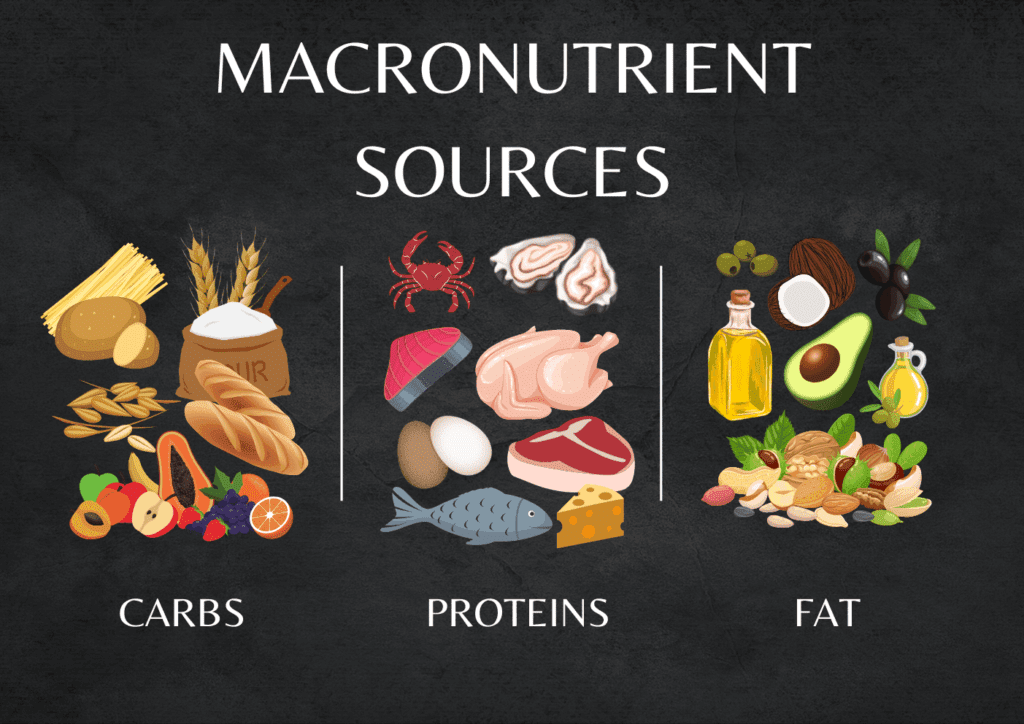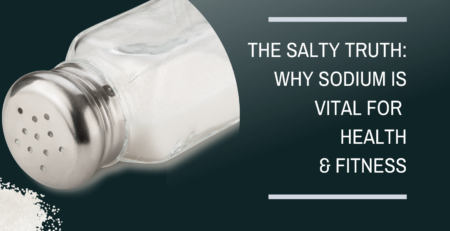What Are Macronutrients?
Have you ever heard of macronutrients? Do you know what they are and why they’re important for your health and well-being? Macronutrients are protein, carbohydrate and fats (and alcohol too). They are the components that make up a food and allow us to determine its nutritional value. They each have a caloric value assigned to them on a per gram basis and the sum of each components caloric value provides us with the energy content of the food. In this article, we’ll explore what macronutrients are, their roles, and how they benefit your health.
The main role of carbohydrates is to provide the body with energy while also helping to regulate blood sugar levels. Proteins are made up of amino acids which help build and repair muscle tissue and promote cell growth. Fats provide the body with essential fatty acids needed for proper functioning of hormones, organs and the building of cells.
Understanding what macronutrients are is an important part of maintaining a balanced diet. Eating foods that contain the right ratios of the three macronutrients helps you ensure you consume the right amounts and can help keep your weight in check, improve metabolism, reduce inflammation, and even reduce your risk for certain illnesses such as heart disease or diabetes. By understanding how these essential nutrients work together to keep our bodies healthy and strong, we can make better decisions about our diets and ensure that we get all the nutrients we need each day.
Definition Of Macronutrients
Macronutrients provide us with energy to fuel our days and nourish us from the inside out. Much like a river that flows through a great city, macronutrients are the essential elements that keep our cells healthy and functioning properly.
Macronutrients are often confused with micronutrients, which are actually vitamins and minerals contained within the food we eat and supplements we take. Macronutrients are comprised of the three core components: carbohydrates, proteins and fats. Alcohol is also a macronutrient, though it doesn’t serve a nutritional purpose.
Each component has its own unique properties and benefits that contribute to our overall health.
Carbohydrates provide us with energy for physical activities such as walking or running; proteins build strong muscles; fats help to regulate hormones. Together they form a powerful combination that helps keep us feeling energized and healthy. Adjusting the ratios of them in our diet helps us manipulate the reaction the body has to training and lifestyle changes.
Macronutrient Categories
Macronutrients are divided into three categories. Generally speaking, these categories include carbohydrates, proteins, and lipids. Carbohydrates are the body’s primary source of energy and are broken down by the body to provide glucose for fuel. Proteins are essential for repairing tissue and building muscle mass, as well as providing necessary hormones and enzymes in the body. Lastly, lipids have several important functions including providing insulation and protection to organs in the body, maintaining healthy skin and hair, and forming cell membranes.
Each macronutrient plays a key role in maintaining overall health. For instance, carbohydrates are important for providing ATP for physical activity, while proteins help build muscles and other bodily tissues. Lipids provide insulation for cells that can keep them functioning properly in cold temperatures or warm environments. Furthermore, lipids also form part of cell membranes which regulate what goes into and out of cells.
| Macro | Primary Function |
|---|---|
| Protein | Build and rebuild tissue such as muscle |
| Carbohydrate | Primary energy source, assists in regulating blood sugar |
| Fat | Secondary energy source, hormone regulation, nutrient absorption and cell production |
In sum, macronutrients enable our bodies to perform at their best. It is important to maintain a balanced diet with adequate amounts of each category of macronutrient so that our body can efficiently carry out its many functions.
Macronutrients And Health
Macronutrients are vital to our physical and emotional well-being; they provide us with energy and build the foundations of our strength.
Though these nutrients have many roles to play in maintaining good health, consuming too much or too little of any one can lead to medical problems or weight gain. It’s been shown that manipulation of the various macronutrients can result in positive health outcomes for certain circumstances. For example, lowering the amount of carbohydrate an insulin resistant person gets in their diet often improves a range of function in the body, resulting in lower blood pressure and improved blood sugar regulation.
As we age we lose muscle mass at a rate of 1-2% each year after the age of 30. One way to combat this decline is to increase the amount of protein in the diet. Maintaining lean body mass with adequate protein intake helps ensure we are strong and resilient enough to withstand traumatic events, such as falls as we age. Protein as a macronutrient has a higher thermic effect when consumed so also helps us increase calorie burn through the thermic effect of food.
It’s important for us to understand how macronutrients work in order to achieve an optimal balance in our diets. We must strive for this balance if we want to enjoy improved physical and emotional health. Eating foods that are nutrient-rich helps ensure that we are getting the right amounts of each macronutrient, while exercising regularly helps burn off excess calories. With a balanced diet and regular exercise, we can live healthier lives that are full of energy and vitality.
Macronutrients And Diet Planning
As we have discussed so far, macronutrients are essential for health and well-being. They provide energy, help build and repair tissues, and are important components in the body’s regulatory processes. However, macronutrients also play a role in diet planning.
When it comes to healthy eating, macronutrient balance is key. Different ratios of macronutrients can be used to customize diets for different goals such as weight loss or muscle gain. For example, higher protein intake might be recommended for those looking to build muscle mass while lower carbohydrate and fat intake might be recommended for those trying to lose weight.
Here’s a breakdown of what I consider to be the optimal diet for most people:
| Macronutrient | Ideal Amount | Reasoning |
|---|---|---|
| Protein | 1.8 to 2.2g/kg body weight | Maintains the body, allows for creation of more lean mass, helps maintain satiety |
| Fats | 1.0 to 1.5g/kg of body weight | Maintains healthy hormone levels, improves satiety, allows wiggle room to factor more carbs |
| Carbohydrate | Remainder of calorie allowance | Not essential for day to day, are readily available and most people have trouble regulating their intake |
Of course you can tweak these as needed, there is no hard and fast rule for everyone and it is absolutely goal specific.
Did you know that the government publishes data stating that average adult requires around 8700 kJ per day to maintain their weight? Did you also know that another government department publishes data stating everyone’s calorie requirements vary depending on a range of factors? No wonder so many people are confused.
I ran the calculation for myself on one of the links above, my estimated calorie requirements are 13,000 kJ OR 3300 Kcal and when checking how much protein I should have the recommendation was a whopping 67 grams per day.
I can tell you with great certainty that this is incorrect for me and it likely will be for you as well.
It’s important to remember that using macronutrients to plan a diet isn’t just about hitting certain numbers but also understanding what types of foods contain which macronutrients and how they interact with each other in the body. Eating whole foods is typically encouraged over processed options due to their higher nutrient content. Knowing how macronutrients work together can help you create balanced meals that will provide your body with the energy it needs while supporting your health goals.
Macronutrient Sources
Macronutrients are found in various different foods and can have a major impact on our health and wellbeing. In this section, we’ll explore five macronutrient sources which should be included in any healthy diet plan.
Fats are an essential part of any nutritious diet, providing us with energy and helping to absorb vitamins A, D, E, and K. Sources of fat include fatty fish, nuts and seeds, avocados, olives, olive oil and coconut oil. Carbohydrates are also necessary as they provide our bodies with energy. Good sources of carbohydrates include vegetables such as potatoes and sweet potatoes as well as whole grains like oats or quinoa.
Proteins are important for repairing muscle tissue and can help to keep us feeling full throughout the day. Foods high in protein include lean meats such as salmon or chicken breast as well as eggs, tofu or tempeh and legumes such as lentils or beans. Eating a variety of these foods will ensure you’re getting enough protein in your daily diet.
Here’s a simple guide for the best sources of specific macronutrients:

By including these five macronutrient sources into your daily meal plan, you’ll be sure to get all the nutrients you need for good health!
Conclusion
The more you can learn about the various macronutrients and how they can be manipulated to create a healthy diet and achieve your goals the better off you will be. They provide the body with the nutrients it needs to perform at its best. Understanding what macronutrients are and how they fit into your diet can help you create a balanced eating plan that meets your individual needs.
Eating a variety of foods from all food groups ensures that you get an adequate supply of all three macronutrients. It’s also important to remember that no one food contains all the nutrients you need; variety is key! If you’ve never tracked your food intake before, starting off by tracking your calorie intake and ensuring you get the right amount of protein in your diet and progress from there is a good way to get started.











